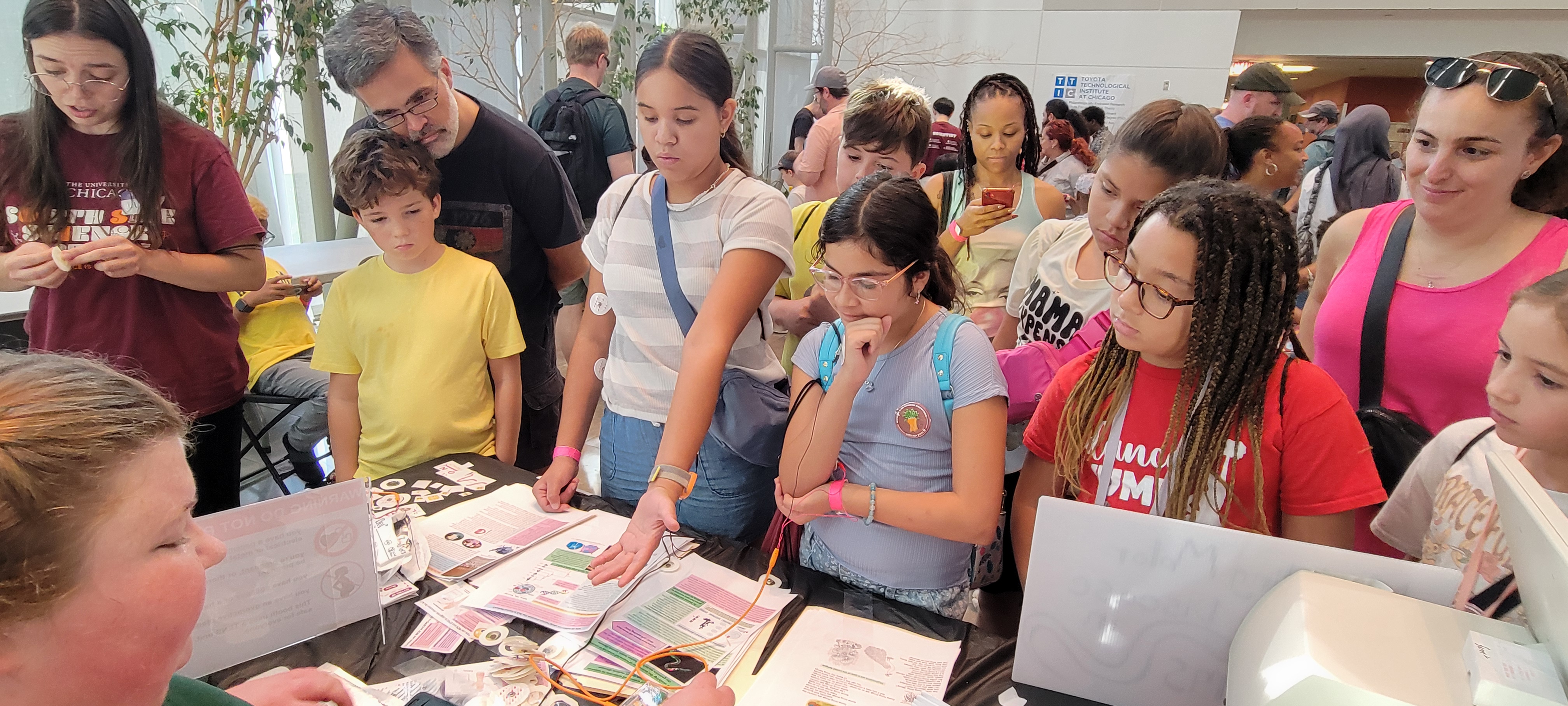Empowering future scientists: UChicago’s hands-on ALS research inspires at South Side Science Festival

At this year’s Southside Science Festival, UChicago neuroscience graduate students dedicated to Motor Neuron Disease research engaged the community in hands-on learning activities about ALS.
Through interactive exhibits—including viewing stem cells from C9orf72 ALS patients, mouse models, and C. elegans models from the Kratsios Lab—attendees experienced the frontlines of neuroscience research.
A highlight was the human-to-human interface experiment using Backyard Brains kits. Attendees learned the biological principles behind movement: how neurons in the motor cortex fire, send signals down the spinal cord, and cause the contraction of muscles —measurable via EMG signals.
Participants learned about the loss of motor neurons during ALS and its effects, resulting in diminished muscle control and paralysis experienced by patients when motor neurons degenerate. They also explored how similar neural signals can power neuroprosthetics, even demonstrating this by controlling their parents' arms and transforming them into “real-life human robots.”
Judy Silva, leader of the Girl Scout Troop 65782 in Chicago that attended the festival, says the opportunity to participate in those activities made science feel exciting, accessible, and truly unforgettable for the kids.
“The girls are still talking about the prosthetic arm activity—especially how they were able to control someone else’s arm! We’re so grateful to the team and the University of Chicago for providing such an inspiring experience for our girls.”
Graduate students Kalea Hidalgo, Jenna Garcia, Kay LaPre, and Lily Kramer, and the postdoctoral fellow Mutum Yaikhomba, were responsible for conducting the activities and inspiring the next generation to consider careers in science, studying diseases like ALS.
Click here to see the full gallery with photos of the festival
